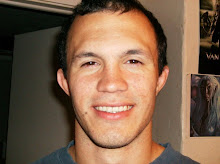Because finding Probabilities without Replacement is such an important concept in this study, I want to put a metaphor out there. This excerpt is straight from the rough draft of my e-book, and it should hit close to home for many single male MTG players, as I was at one time.
"Imagine that you are running late for school/work, and you can't find your keys. As any person in a serene, rational mindset would do when they can't find something, you replay the events in your mind, from the last time you used your keys, to the last probable time you had the keys on your person, as opposed to scouring your belongings, like a well placed Warp World. You know you had to use the keys to open your front door, and under the stress of preforming your day to day functions at 14% brain capacity (this is a continuation of a previous metaphor in the e-book, just try to roll with it), you immediately plopped down on the couch. Eventually, your brain began to recover, and you were ready to assimilate more useless information, so you reached over to the coffee table, and grabbed the remote. You saw a fast-food commercial on T.V. which reminded you that in your previously drooling stupor, you neglected to eat lunch. So you got up to grab some junk food from the kitchen. As is always the case, the shortest commercial break fell on the time interval when you were rushing to get or do something that would make your T.V. viewing experience more pleasurable, and you had to periodically peek into the living-room from the kitchen, as you prepared your dietary abomination. Finally you gave up on the notion of shifting from room to room, and placed all of your pseudo-food items on the bar/dining-room table, so that you could prepare and watch at the same time. After sampling from the eventual buffet line that you drug out onto the coffee table, you discovered the time was later than you thought, when the daily news report looped back onto the station, and decided to get ready for bed. Leaving your garments in whatever room you were standing in, you grabbed your jammies, and headed to the shower.
Logically, the last time the keys could have been on your person, would have been in your pockets. Also, each time you placed yourself or another item, assuming the keys were in your hand, you would have placed them down to pick something else up. Therefore, the couch cushions, the coffee table, the kitchen counter-top, the bar/dinning-room table, and the pockets of your pants from the day before are all logical places to look. Lastly, the keys could have fallen into the extra-dimensional pocket, whose invisible, intangible rift, sporadically winks into existence at random locations in your dwelling, to swallow whatever sets in its place, never to be seen again. So there are six possible locations where you will find, or not find your keys. You check the pockets of the pants you are currently wearing first, working past the stiffness, lint, and grunge, of a weeks worth of wearing. You have a one in six chance of finding your keys here. You pull your pockets inside out, revealing some items previously thought to be casualties to the rift, but reveal no keys. As you are standing in the living room, you decide to start stacking dirty dishes and look on the coffee table. Here and now, you have a one in five chance of finding your keys, as you have already checked one place, but stop and think on what brought you to looking here. If you had found your keys in your pockets, you would be leaving the dirty dishes for someone else to pick up. The overall probability of finding your keys at this point in time is the sum of the probabilities of finding your keys in either location. This is important to remember: when you are checking multiple events for a single outcome, the overall probability is found by adding the probabilities of each event. However, the probability of moving on to the second check is equal to the probability of failing to find the target outcome in the first event. When we are looking for the alternate probability of an event, in this case failure of the the first event, we take one minus that probability. Therefore we must multiply the probability of the second check, by the probability of getting to the second check. The second important property of probabilities to remember is that when more than one probabilities influence an event, those probabilities must be multiplied together. Therefore, the overall probability of second check looks as follows:
P(A or B) =(1/6)+(1/5)(1-1/6)
P(A,B, or C)=1-(1-1/6)(1-1/5)(1-1/4)

No comments:
Post a Comment